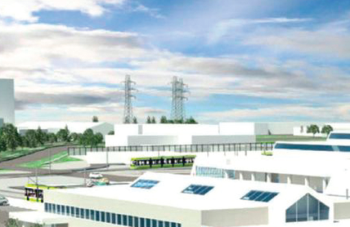
By Sean Delaney
Taking Care of Birds on the Finch West LRT Project
Spring is here and birds are returning to northwest Toronto, which means nesting season will start soon. While construction of the Finch West light rail transit (LRT) project is planned, we must also consider ways to reduce our impact on nesting birds.
Preparatory work is starting at four key sites along the Finch West LRT line: The Finch West station, maintenance and storage facility, Highway 400 bridge, and Humber College at Highway 27.
Tall grasses grow in the greenfield on some of the sites of the Finch West LRT line, such as around the Highway 400 bridge and the maintenance and storage facility (MSF), located between York Gate Boulevard and Norfinch Drive.
In the past, breeding birds were observed in the area. Of concern is the Eastern Meadowlark, a bird that nests in tall grass. It is also listed as threatened under the Endangered Species Act (ESA) 2007.
Before starting any work, Mosaic Transit Group takes steps to not disturb or harm those birds. Mosaic Transit Group is the contractor selected by Metrolinx and Infrastructure Ontario to design and build the Finch West LRT project.
As a safeguard, they’ve hired ecological experts to conduct field investigations in summer 2018 to identify birds in the area and their nesting activity, specifically Species at Risk (SAR), Species of Conservation Concern (SCC), and migratory birds at the MSF and Highway 400 bridge sites. They didn’t observe any of the species mentioned above and found no evidence of birds nesting around the Highway 400 interchange.
Despite the findings, they are applying a conservation approach during construction. For instance, Mosaic will discourage birds from settling in an active construction zone by cutting grass, small shrubs and trees at the MSF site (which must be removed for construction) before the start of the nesting season. Staff will monitor the site during nesting season to check for birds and/or nests. If birds classified as threatened are found, construction activities will stop and/or a qualified biologist will be contacted for advice.
To learn more about the Finch West LRT project, please visit: metrolinx.com/finchwestlrt













